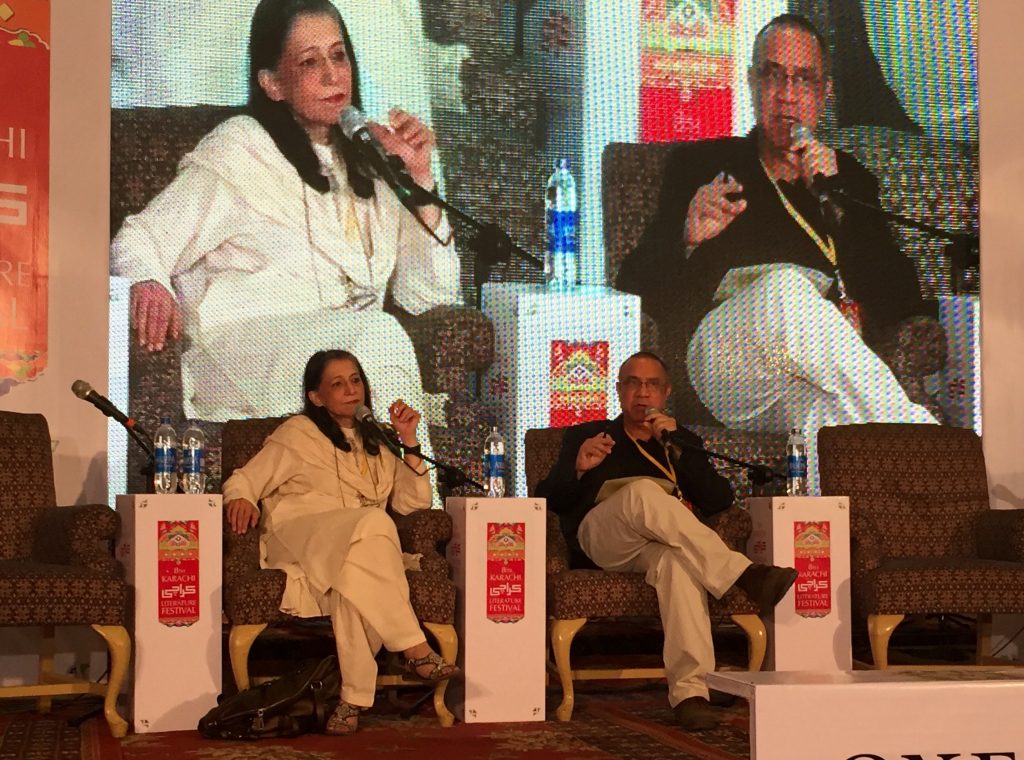In Conversation with Ayesha Jalal
When Ayesha Jalal is part of a conversation, moderators are kept on their toes. And if historian Dr Nomanul Haq didn’t know this, he certainly learnt at a session titled ‘Bringing the Past into the Present’ on the second day of the Karachi Literature Festival.
After Dr Haq went overboard in heaping praises on Jalal, including calling her “a bit of a legend,”Jalal quipped that there was a tendency in Pakistan to turn people into legends and icons, to put them onto ridiculous pedestals, probably because people liked to watch them fall.
While commenting on her book The Struggle for Pakistan (Harvard University Press, 2014), Jalal said “there is a great misconception in Pakistan about what history is. There is confusion between history and ideology. The two aren’t quite the same. History comes from a latin word historia, which means to investigate, unlike political science or IR, which begin with a theoretical model. Historians on the other hand, investigate the actual reality and evidence and do not try to mould that evidence to a hypothesis.”
When asked to comment on the concern of some critics that Jalal does not pay much attention to the Urdu press, Jalal explained, “the problem with some Pakistani commentators is that while reviewing a writer’s work, they often write about what they ideally would have wanted the book to be on, rather than what was actually written. If you want to refute my book, that’s fine, but then please do the necessary research and produce a better work, rather than just write reviews.”
The conversation moved to religion and Jalal argued, “we have been looking at religion as a demarcator of difference whereas Islam is in fact a religion of multiple interpretive capacities, which is why it has flourished globally.”
Asked whether Jinnah and other leaders in the subcontinent had foreseen the violence and bloodshed that would occur during partition, Jalal explained, “there is overwhelming evidence to suggest that there was no obvious connection between what the leaders were saying and the actions of their followers. For example, nobody in Punjab issued an order on behalf of the Muslim League saying kill the Hindus of Lahore. But there’s no denying that people took it upon themselves in different parts of the Punjab to do as they wished. There was certainly nothing foreseen by the leadership, of the scale of violence that occurred.”
Jalal went on to say that while she was working on her book Self and Sovereignty (Routledge, 2001), she consulted a large number of British intelligence sources from Punjab and Sindh, she learnt that the British were quite aware from the late 1930s of “the heightening tension in the rural areas of Punjab.” And they did nothing about it. “Ultimately, the nub of the problem was the violence in the rural areas of the Punjab as well as religion. Therefore it was the rural culture of the Punjab that played up at a moment when the British were quitting and the province was being partitioned on lines of religion.”
The writer is a staffer at Newsline Magazine. His website is at: www.alibhutto.com




